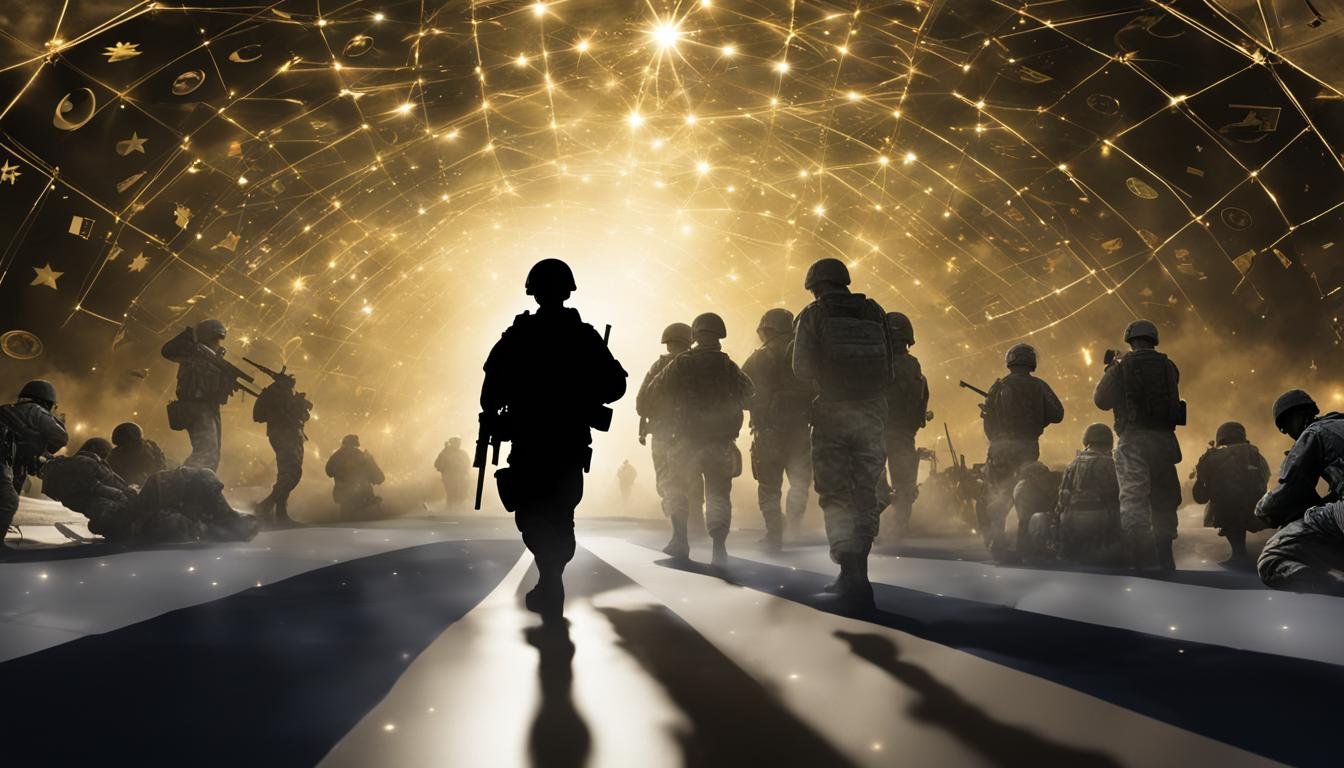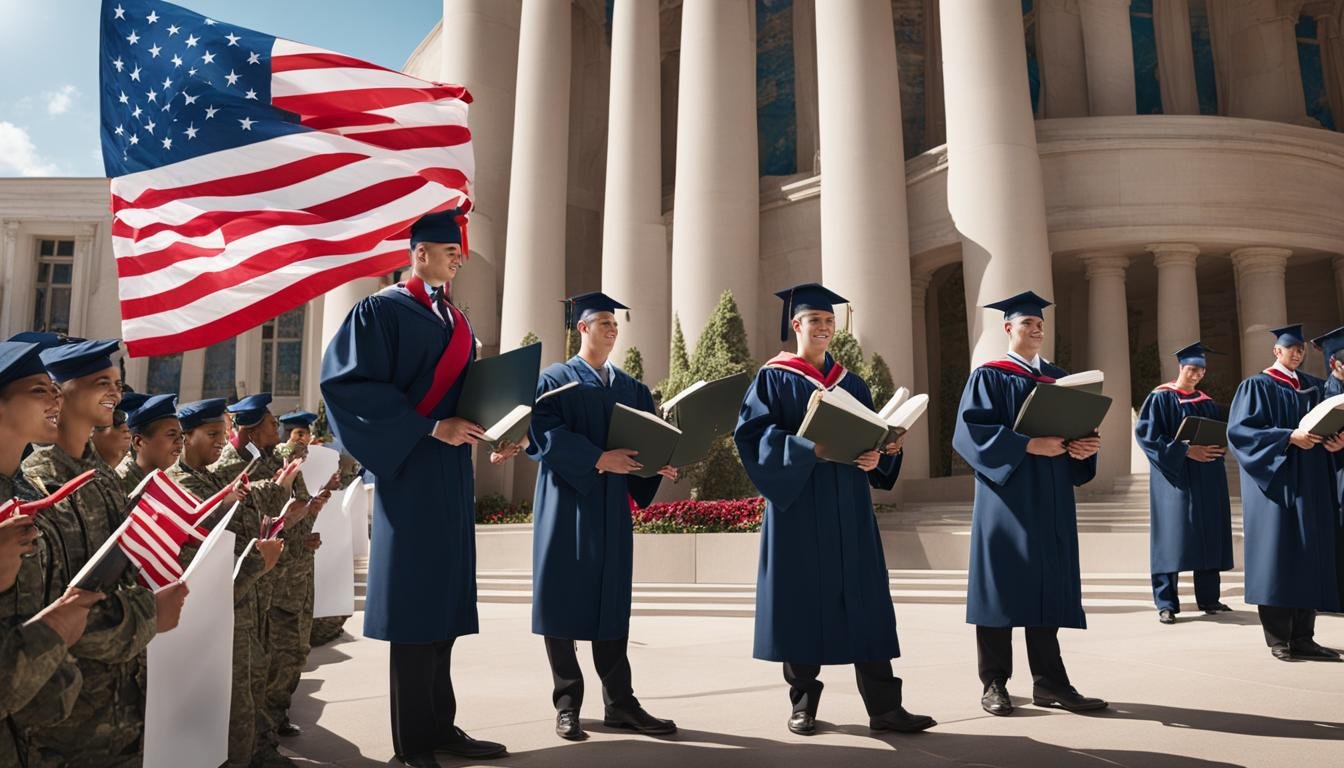In order to ensure the quality and recognition of military training, accreditation standards play a vital role. Accreditation is an essential component for military institutions like the US Army Command and General Staff College (CGSC) to maintain trust among its officers and the American public.
CGSC’s experiential learning environment is accredited by three different accrediting agencies – the Training and Doctrine Command (TRADOC), the Chairman of the Joint Chiefs of Staff (CJCS), and the North Central Association’s Higher Learning Commission (HLC). Each agency has its own set of standards and criteria that CGSC must meet to maintain its accreditation.
Key Takeaways:
- Accreditation is crucial for the recognition and validation of military training.
- CGSC’s experiential learning environment is accredited by TRADOC, CJCS, and HLC.
- Each accrediting agency has its own set of standards and criteria.
- Accreditation ensures the quality, trust, and reputation of CGSC.
- Meeting accreditation standards validates and values military skills nationwide.
Accreditation Standards for CGSC’s Experiential Learning Environment
CGSC’s experiential learning environment is accredited by three different accrediting agencies: TRADOC, CJCS, and HLC. Each accrediting agency has its own set of standards that CGSC must meet to maintain its accreditation.
TRADOC Accreditation Standards
TRADOC has 28 distinctive accreditation standards that CGSC must adhere to. These standards cover areas such as quality assurance, mission and functions, instructional equipment, facilities and environment, library resources, operational environment, and staff and faculty. By meeting these standards, CGSC ensures the quality and effectiveness of its experiential learning environment.
CJCS PAJE Standards
CJCS has its own set of standards known as the Professional Accreditation Joint Education (PAJE). These standards outline the vision of developing the foundations of the joint learning continuum. The PAJE standards focus on areas such as joint ethics, joint warfighting skills, and joint staff employment. Adhering to the PAJE standards allows CGSC to prepare its officers for joint operations and enhance their ability to work effectively in a joint environment.
HLC Accreditation Standards
HLC, as the only civilian accrediting organization, has standards that closely align with the military’s standards. These standards cover areas such as quality assurance, educational programs, faculty qualifications, and student support services. CGSC utilizes the literature provided by HLC to ensure its experiential learning environment meets the standards set by both military and civilian accrediting agencies.
By meeting the accreditation standards set by TRADOC, CJCS, and HLC, CGSC ensures that its experiential learning environment provides high-quality education and training to its officers, preparing them for the challenges they may face in their military careers.
| Accrediting Agency | Standards |
|---|---|
| TRADOC | 28 distinctive accreditation standards covering areas such as quality assurance, mission and functions, instructional equipment, facilities and environment, library resources, operational environment, staff and faculty |
| CJCS | Professional Accreditation Joint Education (PAJE) standards focusing on joint ethics, joint warfighting skills, and joint staff employment |
| HLC | Standards closely aligned with military standards, covering areas such as quality assurance, educational programs, faculty qualifications, and student support services |
What are the specific accreditation standards for military training recognition and how do they benefit military-friendly colleges?
Militaryfriendly college accreditation significance is crucial for recognizing the quality of military training. Specific accreditation standards ensure that military-friendly colleges meet the unique needs of veterans. By providing a clear framework for evaluating military training, these standards help colleges create supportive environments for military students, promoting their successful transition to civilian life.
Impact and Benefits of Accreditation for Military Training Recognition
Accreditation plays a crucial role in ensuring the recognition and validation of military training. For CGSC, maintaining accreditation is mandatory and essential for building trust among its officers and the American public.
The accreditation process helps CGSC meet specific quality standards and criteria set by the accrediting agencies. It also allows CGSC to continuously improve its educational programs and learning environments. By adhering to accreditation standards, CGSC ensures that its officers’ military skills are validated and valued nationwide.
Accreditation provides a way for practitioners in the military profession to set requirements for entering the profession and increases unity among practitioners through collaborative activities. Additionally, accreditation enhances the reputation of CGSC, facilitates federal and state funding, and ensures the quality of education and trust in the institution.
Through accreditation, CGSC demonstrates its commitment to maintaining the highest standards of military training recognition. It ensures that the skills and knowledge acquired by its officers are in line with industry benchmarks, and that they possess the necessary qualifications to serve and protect the nation.



